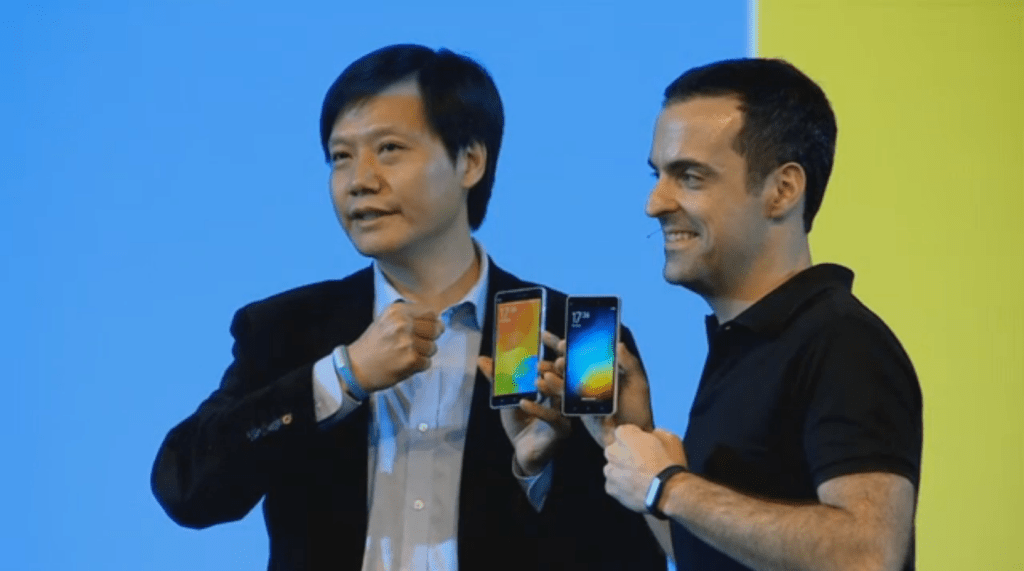Xiaomi has forgone its tradition of revealing how many smartphones it sold the previous year. The strategy yielded many headlines for the highly-regarded Chinese outfit, but today its CEO admitted that Xiaomi has been in transition after growing “too fast”.
The writing was on the cards, even as early as January 2016 when Xiaomi revealed it had sold “over 70 million” devices in 2015. An impressive number, for sure, given the backdrop of slowing smartphone sales worldwide, but it was short of the company’s public target of 80 million, which was reduced from an initial 100 million.
It’s been fairly evident from analyst reports that 2016 wasn’t a year for blockbuster Xiaomi growth. While it featured near the top of the sales pile in China, and held steady in India, its top emerging market, there was no great acceleration as in past years. For example, sales jumped from 7.2 million in 2012, to 18.7 million in 2013 and 61 million in 2014.
A Xiaomi rep confirmed to us that the company will not be disclosing its 2016 sales numbers.
That’s to be expected in many ways. Not only is explosive growth hard to maintain, but the traits that set Xiaomi apart from the competition — its use of components and online-only sales platform — have been widely mimicked and copied across the mobile industry. That means it trades primarily on its brand, a tough ask when you are selling ‘affordable’ devices and Apple is the most desirable smartphone in China by some mile.
But Xiaomi didn’t help itself too, by making bold predictions and hammering home the PR on its growth. CEO and co-founder Lei Jung admitted today that generally it had moved too quickly.
“In the first few years, we pushed ahead too fast. We created a miracle, but also drew on some long-term growth,” Lei said in a letter to employees. “So we have to slow down, further improve in some areas, and ensure sustainable growth for a long-term future.”
It isn’t clear if Lei’s thesis extends to Xiaomi’s valuation, which reached $45 billion courtesy of a $1.1 billion funding round in December 2014. Many pundits feel that Xiaomi has done little to justify that tag since then.
Despite the honest admission, the tone of his letter is upbeat. Lei told Xiaomi’s staff that the “difficult times are behind us.”
While Xiaomi hasn’t revealed those sales figures, it did push out a range of business metrics that it hopes illustrate how it is growing as a company that goes beyond simply selling smartphones, which it recently admitted it makes no profit on.
Lei made the following reveals in his letter:
- Xiaomi reached $1 billion in annual revenue in India for the first time
- Three of Xiaomi’s 54 offline stores passed RMB 100 million ($14.5 million) in GMV this year each — the GMV includes sales of partner products — and it plans to open 200 more in 2017, and 1,000 more by 2020
- Xiaomi’s ‘Mi Ecosystem’ has 50 million connected devices — which includes smart TVs, fitness trackers and more — which brought in RMB 15 billion ($2.2 billion) in sales
- Xiaomi has applied for 16,000 patents globally, 3,612 of which have been granted to date
- Xiaomi’s revenue from “internet services” doubled in 2016 — it didn’t provide a figure but, based on a Reuters report from 2015, it appears to have surpassed $1 billion for the first time
Here’s the interesting part of what Lei said, he wants to push on and see Xiaomi development its offline retail arm. That’s right, the company that pioneered the online-only model is looking to brick and mortar sales.
Lei said Xiaomi has to aim wider because its current distribution model is limited, but you could certainly add ‘stiffer competition’ as another factor:
Our e-commerce strategy has also faced some challenges. E-commerce now makes up just over 10 percent of overall retail in China, and the online smartphone market only makes up 20 percent of the overall smartphone market. Xiaomi has great ambitions, and we are not satisfied with just being an e-commerce smartphone brand, so we have to upgrade our retail model, and incorporate offline retail for a new retail strategy.
He stated his belief that the company’s “internet services” revenue model has been proved and presumably scaling the reach of its products is the next step to building on that progress and raising that revenue.
Beyond expanding its retail presence, Xiaomi plans to focus on developing artificial intelligence — which it has deployed in face detection systems — increasing its global presence, and developing fintech solutions in 2017. The company already offers its own Apple Pay rival and is preparing to launch a digital bank service in China, too.
While there’s no target for handset sales, Lei Jun said his “humble goal” for the year is to reach RMB 100 billion ($14.5 billion) in revenue.
Article updated to correct information about Xiaomi’s retail stores































Comment